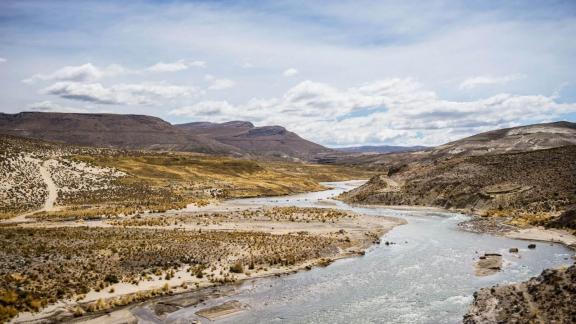Professionally facilitated dialogue is an effective way of solving disputes and conflicts
Martina works for a financial intermediary of an international financial institution in a South American country. The institution where she works asked her to respond to complaints as part of its Grievance Redress Mechanism (GRM) because she participated in a workshop on how to operate a GRM and, more importantly, because she is widely regarded as a person with integrity.
One morning, when checking her inbox, she found a long letter signed by the Amazonian Association of Indigenous Peoples of her country. In that letter, the indigenous leaders said that a project sponsored by her institution and funded by an international financial institution would infringe the rights of the original peoples living in the Amazon provinces of the country. Furthermore, the letter contained allegations that the project was biased and had been designed to favour the indigenous peoples from the Andean regions of the country who were slowly but steadily migrating down from the Andes and settling on the shores of the rivers of the Amazon due to droughts caused by climate change. The letter also indicated that the Ministry of Indigenous Peoples, the Ministry of Environment and the Ministry of Agriculture were partly responsible for the damages, for enabling and participating in the submission of the project to the Green Climate Fund (GCF).
When Martina circulated a summary of the letter to the officials in charge of the project in her institution, the reaction was one of rejection. Some of them even indicated that behind the complaint, there were hidden political motivations due to an upcoming election. It was a matter of public knowledge that the Andean and the Amazonian indigenous peoples were backing opposing political parties.
According to the procedures that Martina had helped to develop for the institution’s GRM, the amicable settlement of complaints should be prioritized through dialogue and negotiation. Now, she was wondering where and how to get started.
Like in Martina’s case, the complaints that are presented to GRMs are often highly complex. While the promise of dialogue in these cases is most welcome, putting it into practice can be challenging.
It is for this reason that as part of its 2021 capacity building program, the Independent Redress Mechanism (IRM) will offer advanced training in community-project mediation to the staff of GRMs of the GCF’s Direct Access Entities (DAEs) for the first time.

The training grows out of an acknowledgement that, while there is a potential for development projects to play an important stabilizing role in complex environments, often large investments can create or exacerbate conflict. Mediation focuses on helping parties find common ground through dialogue and negotiation and can be a particularly useful intervention in these contexts.
The course will help professionals working in GRMs of the GCF’s DAEs and operating under difficult circumstances develop a strategic understanding of the full range of tensions within complex conflict systems and act according to principles of conflict-sensitive intervention. This training will be delivered virtually by the University of Stellenbosch and conducted by Dr. Brian Ganson and Ms. Kate Kopischke, both of whom are globally recognized experts in the field.
In addition to this training, in the second half of 2021, the IRM is also offering a new edition of the online training on operating GRMs. As with last year’s training, the training consists of self-learning elements and guided instruction through the IRM’s online learning modules, as well as live sessions with industry leaders. At the end of the training, which will be delivered by the Consensus Building Institute, under the leadership of Dr. David Fairman, participants will receive a prestigious certificate signed by the Harvard-MIT Public Disputes Program.
Finally, the IRM has translated the modules into both French and Spanish to make the online training on operating GRMs more widely accessible. Furthermore, building on the feedback received from last year’s participants, the online modules will be upgraded this year. The upgrading will consist of the addition of training materials and the revision and re-voicing of video and audio materials.
With the reissue of the workshop on how to operate a GRM and the addition of a workshop on project-company conflict mediation, the IRM hopes to ensure that DAEs of the Green Climate Fund have access to the highest quality of training in the field of grievance redress.
*If you work for a GRM of the Green Climate Fund’s Direct Access Entity and would like to enrol in any of its courses, please send an email to irm@gcfund.org